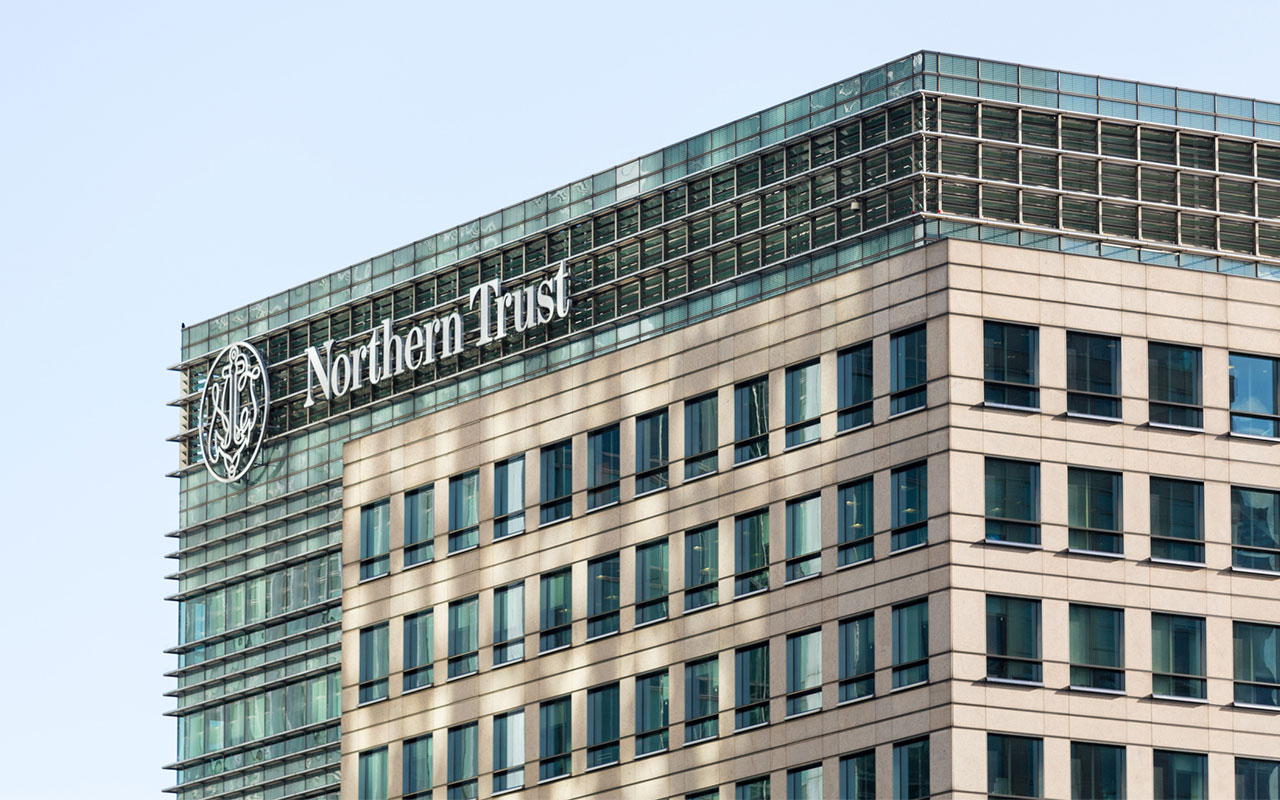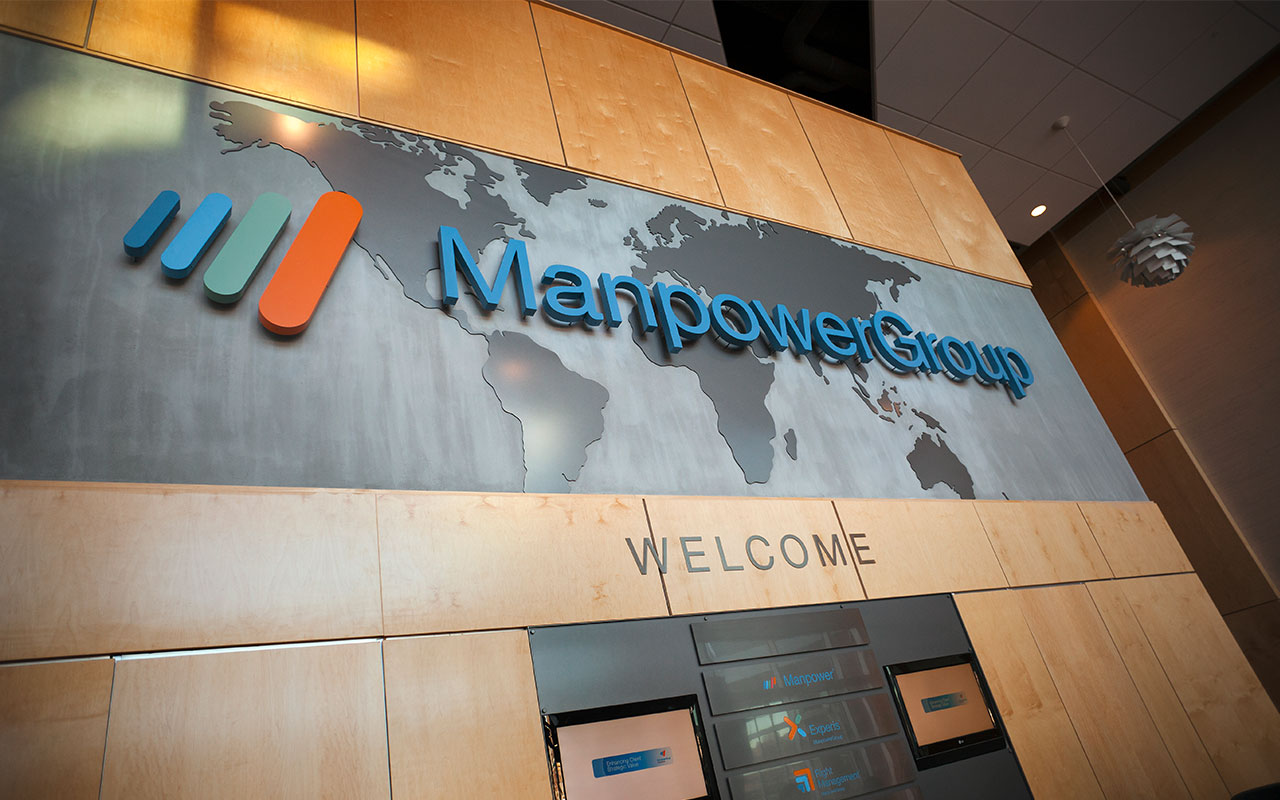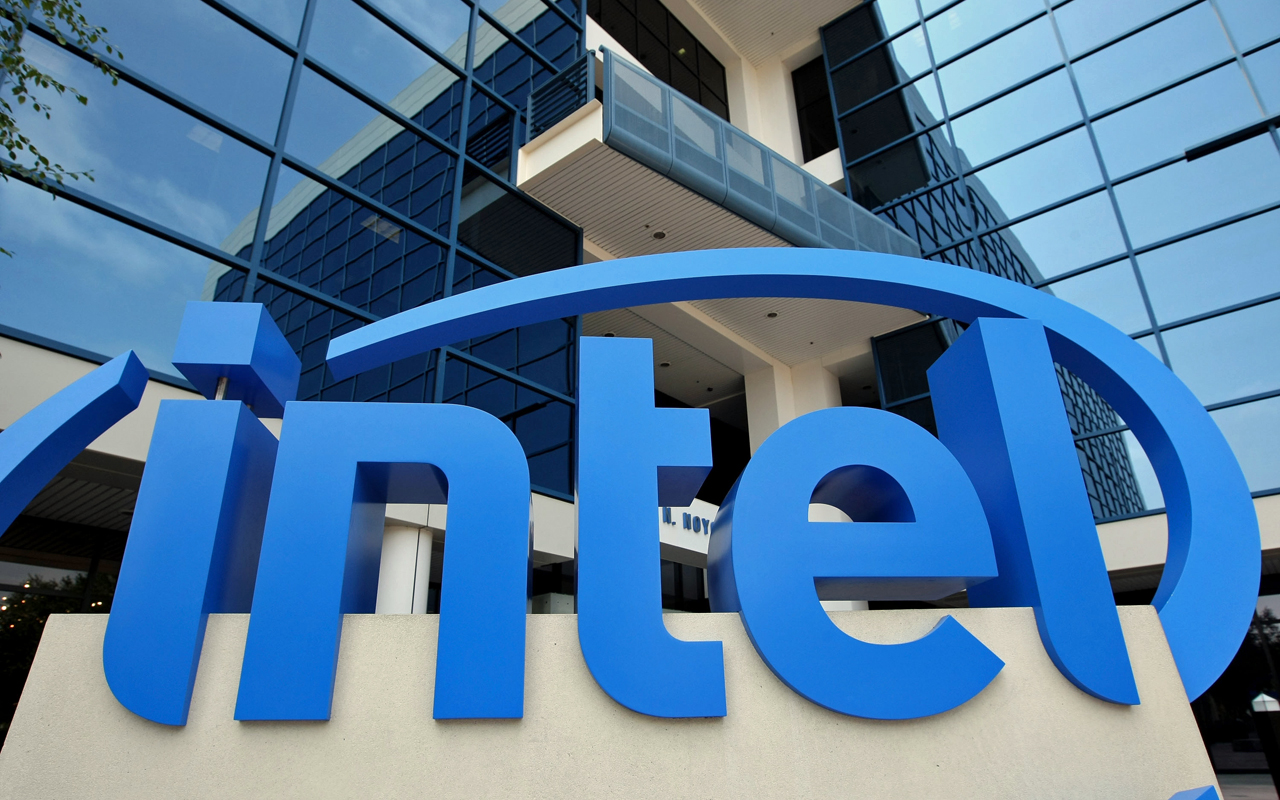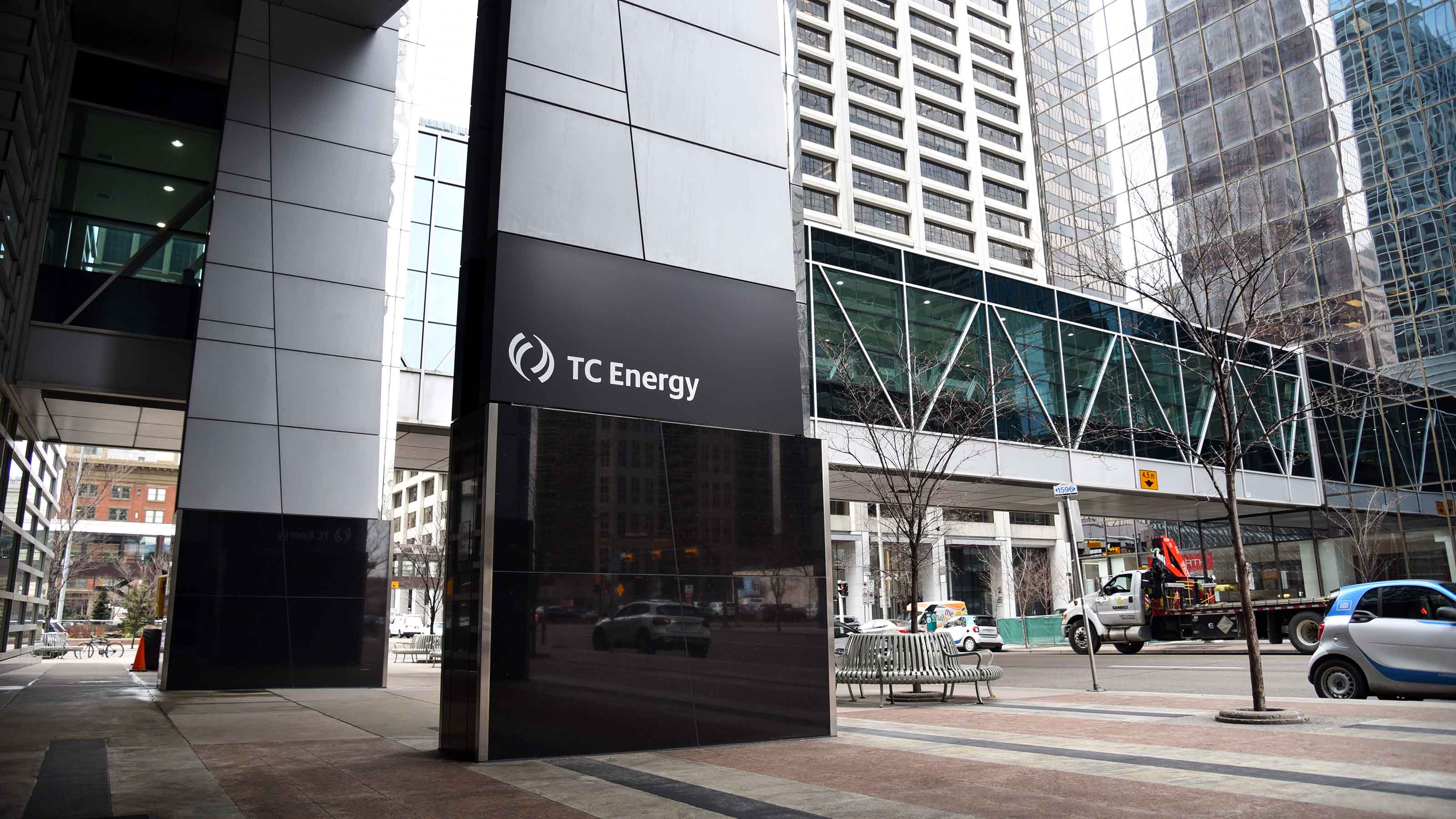The “Accelerators”: 13 Dividend Stocks With Rapidly Growing Payouts
Dividend growth stocks are a time-honored tool for building wealth.


Profit and prosper with the best of Kiplinger's advice on investing, taxes, retirement, personal finance and much more. Delivered daily. Enter your email in the box and click Sign Me Up.
You are now subscribed
Your newsletter sign-up was successful
Want to add more newsletters?

Delivered daily
Kiplinger Today
Profit and prosper with the best of Kiplinger's advice on investing, taxes, retirement, personal finance and much more delivered daily. Smart money moves start here.

Sent five days a week
Kiplinger A Step Ahead
Get practical help to make better financial decisions in your everyday life, from spending to savings on top deals.

Delivered daily
Kiplinger Closing Bell
Get today's biggest financial and investing headlines delivered to your inbox every day the U.S. stock market is open.

Sent twice a week
Kiplinger Adviser Intel
Financial pros across the country share best practices and fresh tactics to preserve and grow your wealth.

Delivered weekly
Kiplinger Tax Tips
Trim your federal and state tax bills with practical tax-planning and tax-cutting strategies.

Sent twice a week
Kiplinger Retirement Tips
Your twice-a-week guide to planning and enjoying a financially secure and richly rewarding retirement

Sent bimonthly.
Kiplinger Adviser Angle
Insights for advisers, wealth managers and other financial professionals.

Sent twice a week
Kiplinger Investing Weekly
Your twice-a-week roundup of promising stocks, funds, companies and industries you should consider, ones you should avoid, and why.

Sent weekly for six weeks
Kiplinger Invest for Retirement
Your step-by-step six-part series on how to invest for retirement, from devising a successful strategy to exactly which investments to choose.
Dividend growth stocks are a time-honored tool for building wealth. Implementing a dividend growth strategy begins with identifying well-managed companies that have solid balance sheets and steadily rising earnings. After all, what company would hike dividends if they anticipated future earnings would decline?
A major advantage of dividend growth investing is the likelihood of capturing some total return even if the share price stagnates. For instance, depending on the length of time held, dividends account for anywhere between 27% and 60% of the total return of the Standard & Poor’s 500-stock index. Dividend growth investing also lets you leverage the exponential growth that comes from compounding of reinvested dividends, and it’s a hedge against inflation, as rising payouts counter the effect of the dollar’s shrinking purchasing power. Better still, dividend growth stocks also have been shown to outperform non-dividend payers and the overall market.
While any dividend growth is better than no growth, the best scenario is a stock whose payout is actually accelerating; your yield on cost will rapidly rise, eventually overtaking and exceeding the yields of stocks with high but stagnant payouts.
Here’s a look at 13 “Dividend Accelerators”: a group of well-known dividend stocks that have recently ramped up their payout growth.
Data is as of Sept. 27, 2018. Dividend yields are calculated by annualizing the most recent quarterly payout and dividing by the share price. Stocks listed in reverse order of dividend yield.

Steris
- Market value: $9.7 billion
- 5-year dividend CAGR: 10.2%
- Dividend yield: 1.2%
- Steris (STE, $113.47) provides sterilization products and related services to hospitals, pharmaceutical makers and life science labs in more than 100 countries. Rising health care spending, heightened public awareness of the risks posed by hospital infections and greater regulatory scrutiny of sterile procedures in pharmaceutical manufacturing are all trends raising demand for the company’s products.
Steris has generated an 8% compound annual growth rate in sales and 11% CAGR in earnings per share over the past decade. Acquisitions have boosted the recurring component of the company’s revenues from 50% to 75% and created a more predictable cash flow stream for supporting double-digit dividend growth.
Steris’ free cash flow grew 15% in 2017 and is guiding for 12%-14% EPS growth and 16% free cash flow growth this year. The company recently told investors that growing the dividend is a high priority — and that should be easy to follow through with thanks to a modest 36% current payout ratio.
Steris’ annual rate of dividend growth rose from 10.2% over five years to 10.5% over three years and 11% last year. If the company hits its goal of 12%-14% EPS growth in 2018 and maintains that payout ratio, dividends could increase at an even faster clip this year.

Group 1 Automotive
- Market value: $1.3 billion
- 5-year dividend CAGR: 11.0%
- Dividend yield: 1.6%
- Group 1 Automotive (GPI, $65.64) is the third largest automotive dealership group in the U.S., retailing more than 300,000 new and used vehicles annually. The company owns 118 dealerships in America, which account for 70% of unit sales, 47 dealerships in the U.K. and 17 dealerships in Brazil.
In the last five years, Group One has grown sales 5.7% a year and EPS 11% annually by expanding its global footprint via acquisition, launching its proprietary Val-U-Line brand of pre-owned cars, and ramping up its higher-margins parts and services operations.
During the first six months of 2018, revenue growth accelerated to 12% and EPS increased 29% year-over-year. In addition, the company amplified investor returns by repurchasing 5.5% of its share float. Faster EPS growth and a heighted focus on shareholders bode well for future dividend gains.
The annual growth rate for dividends has risen from 11% in the past five years to 11.5% in the past three. In addition, Group One has increased its dividend three times in the last eight quarters. Dividend payout is miniscule at just 9% of earnings and presents major opportunities for faster dividend growth.
Stephens & Co. analyst Rick Nelson increased his rating on Group One in August from “Equal Weight” (equivalent of hold) to “Overweight” (equivalent of buy) citing the company’s improving fundamentals and below-average price-to-earnings multiple.

Marine Products
- Market value: $796.7 million
- 5-year dividend CAGR: 28.0%
- Dividend yield: 1.7%
- Marine Products (MPX, $23.13) is a leading American manufacturer of recreational powerboats. Its Chaparral-branded powerboat is the market leader in its category, its Robalo brand holds the No. 3 share in its category, and the company’s new Vortex-branded jet boat is rapidly capturing share in a space dominated by one large competitor.
Powerboat sales have been rising steadily since 2011 and demographic trends are favorable as retiring baby boomers devote more time to hobbies like boating and fishing. Marine Products’ peers are mostly smaller companies with too limited a geographic footprint to pose a competitive threat. Marine Products has an extensive retail network consisting of 161 domestic dealerships and 92 dealerships overseas spread across six continents.
Products has produced 4.4% CAGR in sales and 5.2% CAGR in net income over the past two decades, but growth has recently accelerated. Revenues and profits improved by 10.8% and 25.3%, respectively, in 2017, and 15.4% and 45.9%, respectively, during the first six months of 2018.
The pace of annual dividend growth has increased, too, from 28% over five years to 32.6% in the most recent three years, including a 31% hike last year. Heightened EPS gains and a conservative payout (49% of earnings) set the stage for more payout expansion.

Hormel Foods
- Market value: $20.8 billion
- 5-year dividend CAGR: 18.4%
- Dividend yield: 1.9%
- Hormel Foods (HRL, $38.90) is a global giant in the food products market and a Dividend Aristocrat that has posted 52 years of dividend growth. The company holds the No. 1 or No. 2 market share in more than 35 food categories. In addition to its own familiar Hormel brand, the company owns iconic names such as Skippy, Jennie-O, Dinty Moore, Natural Choice and Spam.
Hormel is one of only seven companies in the S&P 500 that have increased earnings in 28 of the last 32 years. The company is committed to delivering 5% annual growth in sales and 10% EPS growth over the next few years by expanding into new food categories such as non-meat proteins, accelerating growth in its foodservice business, recreating its successful US business model globally and increasing the sales contribution from higher-margin products. Hormel is guiding for 15-24% earnings growth this year.
Hormel’s annual dividend growth has climbed from 16.3% over the past 10 years to 18.4% in the past five and 19.3% in the past three. It’s paying out just 41% of its earnings as dividends, allowing for still faster growth going forward.
Jefferies analyst Akshay Jagdale upgraded his rating on Hormel from “Hold” to “Buy” in February, citing the company’s strong management, a turnaround in the turkey meat cycle and a robust acquisition pipeline. However, three analyst firms (Barclays, BMO Capital and Stephens) recently reduced their ratings on Hormel from “Outperform” (equivalent of buy) to “Market Perform” (equivalent of hold).

Lear
- Market value: $9.6 billion
- 5-year dividend CAGR: 26.7%
- Dividend yield: 1.9%
- Lear (LEA, $146.73) is a Tier 1 automotive supplier. The company manufactures automotive seating, electrical distribution systems and related sub-systems, components and software for automakers worldwide. Lear operates 257 production facilities in 39 countries and has invested more than $7 billion in its manufacturing capabilities over the past decade.
Lear has generated 7% annual growth in sales and 25% CAGR in profits over the past six years. And its return on capital (ROC) has improved from 14% to 19% in that time, ranking among the highest in the automotive sector. Growth reflects Lear’s leadership position in the fast-growing crossover and SUV segments and its ability to offer the most complete capabilities of any seat or electrical systems provider.
Lear is ideally positioned to benefit from rising vehicle demand in emerging markets, which are expected to account for 90% of the industry’s growth over the next five years. The company holds the top market share for automotive seating in India and South America and the No. 2 share in China.
Lear has been able to convert 94% of its earnings to free cash flow, which has been invested in manufacturing facility expansion, acquisitions, share repurchases and the dividend. The company returns approximately 42% of cash to shareholders through dividends and is committed to doubling free cash flow over the next five years, boding well for the payout.
Lear’s annual rate of dividend growth has accelerated from 26.7% in the past five years to 35.7% in the past three years and 50% last year.
Lear shares have a consensus analyst rating of “Overweight.” In July, Morgan Stanley analyst Adam Jonas raised his rating on the company from “Equal Weight” to “Overweight,” noting shares trade at a discount to historical levels and expectations of future EPS growth topping analyst estimates.

Cabot
- Market value: $3.9 billion
- 5-year dividend CAGR: 9.7%
- Dividend yield: 2.1%
- Cabot (CBT, $63.40) is a specialty chemicals company with a 50-year track record of dividends. The company holds the top or No. 2 market share in rubber black (used in tire manufacturing), specialty carbons and cesium chemicals for drilling fluids.
In recent years, Cabot has moved manufacturing assets to China and strengthened its Asian partnerships. These actions have paid off as China has emerged as a world leader in the production of tires, silicones and plastics.
Cabot has expanded EPS 18% annually in the past three years and is committed to maintaining earnings growth above 10%, expanding free cash flow by 20% to 60% and returning half of its free cash flow to investors.
Accelerated EPS growth has caused Cabot’s annual dividend growth rate to expand from 9.7% over five years to 13.9% in the past three years and 38% in 2017.
Cabot shares have a consensus analyst rating of “Overweight.” Baird analyst Ben Kalio recently upgraded his rating on CBT stock from “Neutral” to “Outperform,” citing tailwinds in the carbon black market and new performance chemical products as positive catalysts.

Assurant
- Market value: $6.7 billion
- 5-year dividend CAGR: 23.5%
- Dividend yield: 2.1%
- Assurant (AIZ, $106.29) is a leading provider of specialized insurance products in North America and some overseas markets. The company provides lender-placed homeowner’s insurance and renters insurance, and insures the extended warranties and service contracts for vehicles, appliances and mobile devices. Assurant’s customers include 9 of the top 10 auto-makers, property and casualty insurance companies and mortgage servicing providers.
Last quarter, Assurant closed the acquisition of The Warranty Group, a move that is expected to deepen the company’s global footprint, extend its share in the vehicle protection market with new clients and distribution channels, reduce risk exposure and enable $60 million of operating synergies this year and next year.
Income (excluding catastrophic losses) rose 22% last year, and the company returned more than $510 million to shareholders through share repurchases and dividends. Over the past two years, Assurant has returned more than †$1.5 billion to shareholders. The company’s income improved 34% year-over-year during Q2 2018, and the company is guiding for full-year earnings 20%-25% higher, fueled by contributions from the TWG acquisitions, a lower effective tax rate and $10 million of synergies.
Assurant’s annual dividend growth rate has improved from 16.6% over 10 years to 23.5% over five years and 26.6% in the past three years. A low payout ratio of 29% supports any expectations of continued dividend growth.
Three analyst firms (UBS, Morgan Stanley and Keefe Bruyette & Woods) have initiated coverage of Assurant during 2018 with “Outperform” ratings. Morgan Stanley analyst Kai Pan noted that Assurant’s business mix shift from risk-based insurance to less risky protection plans facilitates faster growth and rising return on equity.

Northern Trust
- Market value: $22.9 billion
- 5-year dividend CAGR: 6.4%
- Dividend yield: 2.1%
- Northern Trust (NTRS, $102.93) has been ranked the best private bank in the US in eight of the past nine years. This leading wealth manager primarily serves corporate pension funds, institutional clients and affluent families. The bank has operations worldwide and holds $10.7 trillion of custodial assets.
Northern Trust’s growth has resulted from embracing industry trends in passive investing and alternative asset management, developing new AI and robotics technologies for managing wealth, and helping clients navigate an increasingly complex regulatory environment with tax-efficient vehicles and risk management tools.
The bank grew EPS 14% last year and 48% during the first six months of 2018. RoE, a key bank profitability measure, has been rising steadily from 9.3% in 2012 to 12.6% last year and 16% in the first half of 2018.
Northern Trust’s annual dividend growth rate has improved from 6.4% in the last five years to 7.2% in the past three years and 11% this year. With dividend payout held to just 26% of earnings, this wealth manager has ample capacity for additional growth.
Goldman Sachs analyst Alex Blostein upgraded his outlook on Northern Trust in April from “Neutral” to “Buy,” noting the bank’s best-in-class fee growth and strong positioning in a favorable macro environment.

Manpower Group
- Market value: $5.6 billion
- 5-year dividend CAGR: 19.5%
- Dividend yield: 2.4%
- Manpower Group (MAN, $84.29) is the world’s third largest professional staffing firm. The company operates a network of approximately 2,700 offices across 80 countries and delivered 66 million hours of professional talent last year in the areas of IT, engineering and finance.
Manpower Group benefits from a robust U.S. labor market that has posted 95 consecutive quarters of growth and shows no signs of slowing down. Hiring in the company’s specialties is growing at double-digit rates across all four American regions. Demand for skilled talent is also expanding globally with employers reporting plans to hire in 43 of 44 countries surveyed.
Manpower generated 28% EPS growth last year on a 7% improvement in revenues. During the first six months of 2018, sales grew 13% year-over-year and EPS climbed 29%.
Manpower Group has lifted its annual rate of dividend growth from 19.5% over five years to 23.8% over three years and already hiked its dividend once this year by 8.6% in May. Dividend payout is a low 22% of earnings and leaves plenty of room for more growth.
Argus analyst Jasper Hellwig reiterated his “Buy” rating on Manpower Group in August, citing margin improvements from the company’s recent restructuring and the likelihood of continued strong hiring growth, particularly in Europe, amid improving global economic and labor market conditions.

Intel
- Market value: $210.5 billion
- 5-year dividend CAGR: 4.6%
- Dividend yield: 2.6%
Already the dominant player in microchips, Intel (INTC, $45.88) is successfully making the transition from a PC-centric business to one focused on big data and AI applications. The benefits of this shift are evident in Intel’s financial performance. The company’s data-centric segments, which include data centers, Internet of Things and programmable solutions, are expanding faster than all its other businesses combined. New products like its Nervana neural network processor for AI applications and Xeon scalable processors for data centers position Intel to capitalize on explosive growth in big data and offset a slowing PC market.
Contributions from Intel’s data-centric businesses accelerated growth in sales (6%) and EPS (28%) last year, and 12% and 66%, respectively, in the first six months of 2018. The company is guiding for 11% revenue growth and 20% EPS growth this year. Free cash flow is forecast to rise 46% year-over-year and provide better than 3x dividend coverage.
Intel’s re-energized performance has supported acceleration in the dividend growth rate from 4.6% over five years to 6.2% over three years and 10% this year.
In September, Northland Capital analyst Gus Richards upgraded his Intel rating from “Underperform” (equivalent of sell) to “Market Perform,” citing key AI assets, market leadership in Autonomous Vehicles and a potential new CEO as growth catalysts. Intel has buy or strong-buy ratings from 23 analysts, 13 holds and five sell or strong-sell ratings.

Broadcom
- Market value: $100.9 billion
- 5-year dividend CAGR: 44.6%
- Dividend yield: 2.8%
- Broadcom (AVGO, $246.45) has grown through acquisitions to a global leader in semiconductor connectivity solutions for the wired infrastructure, wireless communications and enterprise storage markets. The company recently acquired industry competitor CA Technologies in a $18.9 billion cash transaction that management says will expand Broadcom’s addressable markets, boost recurring revenues and support continued double-digit EPS growth.
Broadcom has delivered 37% CAGR in revenues and 33% CAGR in EPS over the past five years as well as major margin improvements. These gains have amplified growth in free cash flow, which rose to $2.1 billion and 42% of revenues in the June quarter. Broadcom’s policy of returning 50% of free cash flow to investors has supported annual dividend growth averaging 44.6% in the past five years and 53.4% in the past three years. The company is guiding for 72% dividend growth this year.
Nomura Securities analyst Romit Shay recently upgraded his rating on Broadcom from “Neutral” to “Buy,” citing the company’s strong guidance for its wireless segment, benefits from the CA acquisition and expectations of big dividend hikes.

Leggett & Platt
- Market value: $5.7 billion
- 5-year dividend CAGR: 4.4%
- Dividend yield: 3.5%
- Leggett & Platt (LEG, $43.78) is a leading manufacturer of furniture and components and has delivered 47 consecutive years of dividend growth. With few large competitors, the company is benefiting from a robust U.S. housing market that is creating demand for furniture and home furnishing products.
Leggett & Platt has grown through both organic expansion and acquisitions and recently gained a foothold in the $5 billion construction and materials handling equipment market through its 2018 buyout of Precision Hydraulic Cylinders. Importantly, this acquisition will make future earnings less cyclical and reliant on consumer spending.
Over the next three years, Leggett & Platt expects to accelerate annual sales growth from 2% to 8%, boost EPS growth from 11% to 12% a year and maintain dividend payout at 50%-60% of earnings.
Leggett & Platt recently has ramped up dividend growth from 4.4% a year in the last five years to 5.2% a year in the last three years and 5.8% last year. Looking forward, the company targets annual dividend growth keeping pace with anticipated 11%-12% gains in EPS.
Stifel Nicholas analyst John Baugh upgraded his rating on Leggett & Platt in April from “Hold” to “Buy,” noting improvements in its two largest markets — bedding and automotive — as catalysts for growth.

TransCanada
- Market value: $36.7 billion
- 5-year dividend CAGR: 7.3%
- Dividend yield: 5.3%
TransCanada (TRP, $40.27) owns one of North America’s largest natural gas distribution networks with nearly 92,000 kilometers of pipeline. The company also is one of Canada’s largest power generators, with 11 power plants and 6,100 megawatts of generating capacity.
TransCanada has $28 billion of natural gas pipeline expansion projects underway in Canada, the U.S. and Mexico that the company expects will fuel 10% CAGR in cash flow over the next three years.
While TransCanada has encountered many delays on its Keystone XL pipeline, the U.S. State Department recently approved the pipeline’s new path. The Nebraska Supreme Court will rule on the Keystone XL’s future later this year or in early 2019.
TransCanada has an impressive dividend growth streak of 18 years. Meanwhile, the payout’s expansion recently increased from 7.3% a year in the last five years to 9.2% a year in the past three years and 10.5% this year. With new pipeline expansion projects coming online, TransCanada expects dividend growth to accelerate to an 8%-10% annual range. The safety of the dividend is ensured by distributable cash flow that currently provides better than 2x coverage.
TransCanada has buy-equivalent ratings from 16 analysts and just three holds.
Profit and prosper with the best of Kiplinger's advice on investing, taxes, retirement, personal finance and much more. Delivered daily. Enter your email in the box and click Sign Me Up.

Lisa currently serves as an equity research analyst for Singular Research covering small-cap healthcare, medical device and broadcast media stocks.
-
 Dow Leads in Mixed Session on Amgen Earnings: Stock Market Today
Dow Leads in Mixed Session on Amgen Earnings: Stock Market TodayThe rest of Wall Street struggled as Advanced Micro Devices earnings caused a chip-stock sell-off.
-
 How to Watch the 2026 Winter Olympics Without Overpaying
How to Watch the 2026 Winter Olympics Without OverpayingHere’s how to stream the 2026 Winter Olympics live, including low-cost viewing options, Peacock access and ways to catch your favorite athletes and events from anywhere.
-
 Here’s How to Stream the Super Bowl for Less
Here’s How to Stream the Super Bowl for LessWe'll show you the least expensive ways to stream football's biggest event.
-
 What to Do With Your Tax Refund: 6 Ways to Bring Growth
What to Do With Your Tax Refund: 6 Ways to Bring GrowthUse your 2024 tax refund to boost short-term or long-term financial goals by putting it in one of these six places.
-
 What Does Medicare Not Cover? Eight Things You Should Know
What Does Medicare Not Cover? Eight Things You Should KnowMedicare Part A and Part B leave gaps in your healthcare coverage. But Medicare Advantage has problems, too.
-
 15 Reasons You'll Regret an RV in Retirement
15 Reasons You'll Regret an RV in RetirementMaking Your Money Last Here's why you might regret an RV in retirement. RV-savvy retirees talk about the downsides of spending retirement in a motorhome, travel trailer, fifth wheel, or other recreational vehicle.
-
 The 24 Cheapest Places To Retire in the US
The 24 Cheapest Places To Retire in the USWhen you're trying to balance a fixed income with an enjoyable retirement, the cost of living is a crucial factor to consider. Is your city the best?
-
 The Six Best Places to Retire in New England
The Six Best Places to Retire in New Englandplaces to live Thinking about a move to New England for retirement? Here are the best places to land for quality of life, affordability and other criteria.
-
 The 10 Cheapest Countries to Visit
The 10 Cheapest Countries to VisitWe find the 10 cheapest countries to visit around the world. Forget inflation and set your sights on your next vacation.
-
 15 Ways to Prepare Your Home for Winter
15 Ways to Prepare Your Home for Winterhome There are many ways to prepare your home for winter, which will help keep you safe and warm and save on housing and utility costs.
-
 Six Steps to Get Lower Car Insurance Rates
Six Steps to Get Lower Car Insurance Ratesinsurance Shopping around for auto insurance may not be your idea of fun, but comparing prices for a new policy every few years — or even more often — can pay off big.
